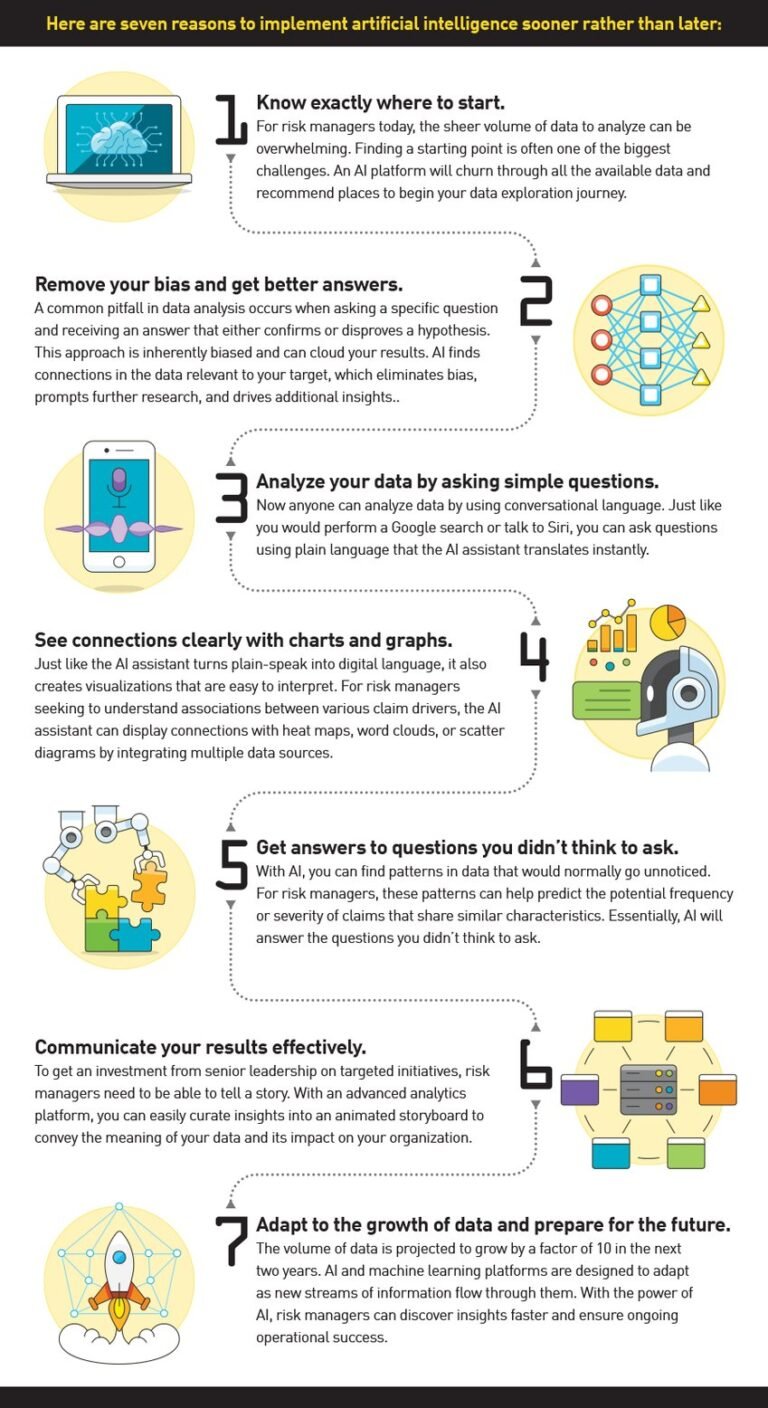How To Use AI To Make Our World A Better Place

In this article, you’ll discover how the incredible power of Artificial Intelligence (AI) can be harnessed to create positive change in our world. From enhancing healthcare and revolutionizing education, to improving renewable energy and combating climate change, this captivating exploration will delve into the innovative ways AI is being utilized to tackle some of the biggest challenges we face today. Get ready to unlock the potential of AI and join the movement towards making our world a better place for all.

The Potential of AI in Improving Society
Artificial Intelligence (AI) has the potential to bring about significant positive changes in various aspects of society. By leveraging cutting-edge technology and advanced algorithms, AI can enhance healthcare, improve education, and promote sustainable development. These applications of AI have the power to transform lives, tackle global challenges, and create a brighter future for all.
Enhancing Healthcare
AI has the power to revolutionize healthcare by improving diagnostics, treatment plans, and patient care. With the ability to analyze vast amounts of medical data quickly, AI algorithms can assist in early detection and diagnosis of diseases, enabling doctors to provide timely interventions. Personalized medicine, which tailors treatment plans according to an individual’s genetic makeup, can also benefit from AI’s capabilities. Moreover, AI can enhance accessibility by allowing remote monitoring and telemedicine, reaching underserved populations and improving healthcare outcomes on a global scale.
Improving Education
In the field of education, AI has the potential to transform traditional learning methods and make education more personalized and accessible. Through personalized learning platforms, AI can adapt teaching materials and techniques to the unique needs and learning styles of individual students. With AI, educators can track students’ progress more effectively, identify areas of improvement, and provide targeted interventions. Additionally, administrative processes, such as grading and scheduling, can be optimized through AI, allowing teachers to focus more on student engagement and instruction.
Promoting Sustainable Development
Sustainable development is crucial for the long-term well-being of our planet and its inhabitants. AI can play a crucial role in promoting sustainability by optimizing energy consumption, monitoring environmental health, and developing smart cities. Through AI-powered algorithms, energy usage can be optimized in buildings and infrastructure, reducing carbon footprints and mitigating climate change. Environmental monitoring systems can leverage AI to analyze real-time data, detect pollution, and enhance resource management. AI can also contribute to developing smart cities by improving efficiency, reducing waste, and creating livable urban environments.
Ethical Considerations in AI Development
While AI holds immense potential, it is essential to address a range of ethical considerations to ensure responsible and fair development and usage.
Data Privacy and Security
As AI algorithms rely on vast amounts of data, ensuring data privacy and security is crucial. Effective measures must be taken to protect sensitive personal information from unauthorized access and breaches. Striking a balance between data access for AI development and privacy rights is crucial to maintain public trust and confidence.
Bias and Discrimination
AI algorithms are only as unbiased as the data they are trained on. If the training data is biased, the AI system can perpetuate discrimination or unfairness. It is essential to develop AI algorithms that are inherently unbiased and continuously monitor and address any biases that may emerge during its use.
Job Automation
AI has raised concerns about job displacement and potential unemployment. While AI can automate repetitive and mundane tasks, it also presents opportunities to enhance skills and create new job roles. Addressing the impact of job automation requires proactive measures, such as upskilling and reskilling programs, to prepare the workforce for the changing job landscape.
Collaboration between AI and Humans
To leverage the full potential of AI and ensure its responsible implementation, collaborative efforts between AI systems and humans are crucial.
Human-AI Interaction
Developing effective human-AI interaction methods is essential to facilitate seamless integration and collaboration. AI should be designed to augment human capabilities, providing support and enhancing decision-making processes. A user-friendly interface, natural language processing, and intuitive AI systems can bridge the gap between users and technology, making AI accessible to a wider range of individuals.
AI Augmentation
Instead of replacing humans, AI should be seen as a tool to augment human capabilities. By automating routine tasks, AI allows humans to focus on more complex and creative problem-solving. AI can assist professionals, such as doctors and teachers, by providing insights and recommendations based on extensive data analysis. This collaboration allows for more efficient and effective outcomes in various fields.
Responsible Implementation
Responsible implementation of AI requires establishing frameworks and guidelines to ensure ethical behavior and accountability. Governments, organizations, and developers should work together to develop regulatory frameworks that address potential risks, protect user rights, and establish transparent AI governance. Ethical guidelines should guide the development and usage of AI systems, placing value on fairness, transparency, accountability, and social impact.

Addressing Global Challenges with AI
AI has the potential to address pressing global challenges that require innovative and scalable solutions.
Climate Change Mitigation
Climate change is one of the most significant challenges facing humanity today. AI can aid in climate change mitigation by optimizing energy consumption, predicting environmental patterns, and enabling effective resource management. With AI’s ability to analyze vast datasets, it can help identify trends, develop models, and explore sustainable alternatives to reduce carbon emissions.
Disaster Response and Management
Natural disasters pose a significant threat to human lives and infrastructure. AI can enhance disaster response and management by analyzing real-time data, predicting disaster patterns, and coordinating relief efforts. Machine learning algorithms can assess satellite images to detect potential disaster areas, while predictive analytics can help allocate resources efficiently and prioritize response activities.
Poverty Alleviation
AI can also contribute to poverty alleviation by enabling smarter resource allocation and inclusive policies. Through AI-powered systems, governments and organizations can analyze socio-economic data to identify areas of need and implement targeted interventions. AI can assist in designing effective welfare programs, improving access to education and healthcare, and promoting socio-economic development in disadvantaged communities.
AI in Healthcare
AI has the potential to revolutionize healthcare by transforming the way we detect, diagnose, and treat diseases.
Early Detection and Diagnosis
AI algorithms can analyze medical records, imaging data, and biomarkers to identify early signs of diseases. By detecting diseases at an early stage, AI can enable timely interventions and improve the chances of successful treatments. Machine learning algorithms can learn from millions of medical images and provide accurate and swift diagnoses, assisting healthcare professionals in providing personalized care.
Precision Medicine
Precision medicine aims to tailor medical treatments to an individual’s specific genetic makeup. AI can analyze vast genetic and medical datasets to identify patterns and correlations, allowing for personalized treatment plans that consider an individual’s unique characteristics and biological markers. This approach can lead to more effective treatments with fewer side effects.
Improving Accessibility
AI can enhance accessibility to healthcare across the globe, bringing medical expertise to underserved populations. Telemedicine, enabled by AI technologies, allows remote consultations, monitoring, and diagnosis. This enables individuals in remote areas to receive medical advice and care without the need to travel long distances. AI-powered chatbots and virtual assistants also provide accessible healthcare information and guidance to individuals at any time.
Transforming Education with AI
AI has the potential to transform education, making it more personalized, efficient, and accessible for learners.
Personalized Learning
Through AI-powered platforms and algorithms, education can be tailored to the needs, pace, and learning styles of individual students. AI can adapt the curriculum, content, and teaching methods to optimize learning outcomes. By providing personalized recommendations and adaptive feedback, AI enables students to learn at their own pace, ensuring efficient knowledge acquisition.
Efficient Administrative Processes
AI streamlines administrative processes in educational institutions, freeing up time for educators to focus on teaching and student engagement. Routine tasks like grading, scheduling, and administrative paperwork can be automated, allowing teachers to dedicate more time to individual instruction and mentorship. This automation also improves efficiency and reduces administrative burdens across educational organizations.
Enhancing Accessibility
AI can bridge the accessibility gap in education, ensuring equal opportunities for learners of all backgrounds. Through AI-powered translation tools and text-to-speech applications, language barriers can be overcome, enabling learners to access educational resources in their native language. AI can also assist students with disabilities by providing personalized accommodations and adaptive learning environments.
Sustainability and AI
AI has the potential to drive sustainability efforts, promoting energy optimization, environmental monitoring, and the development of smart cities.
Energy Optimization
AI algorithms can analyze energy consumption patterns, optimize heating and cooling systems, and identify energy-saving opportunities in buildings and infrastructure. By leveraging AI, energy usage can be reduced, leading to lower carbon emissions and more sustainable development. Smart grids, powered by AI, can efficiently distribute energy, manage demand, and integrate renewable sources into the energy mix.
Environmental Monitoring
AI can enhance environmental monitoring by analyzing real-time data from sensors and satellite images. Machine learning algorithms can detect and track environmental risks such as air and water pollution, deforestation, and climate change patterns. By providing accurate and timely insights, AI enables policymakers and environmental agencies to make informed decisions and take effective measures to protect our ecosystems.
Smart Cities
AI can contribute to creating smart cities, where technology is leveraged to enhance quality of life, reduce environmental impact, and improve urban services. Through AI-powered systems, cities can optimize transportation networks, manage waste effectively, and improve public safety. From traffic management and energy-efficient buildings to intelligent waste management and smart street lighting, AI can help create sustainable and livable cities for all.
Ensuring Privacy and Fairness in AI
To foster public trust and ensure responsible AI usage, privacy and fairness must be prioritized throughout the development and implementation process.
Data Protection and Encryption
AI algorithms depend on vast amounts of data, making data protection and encryption crucial in preserving user privacy. Comprehensive data protection measures, such as secure data storage and encryption techniques, must be implemented to ensure the confidentiality and integrity of personal information. Furthermore, transparent data handling practices and user consent mechanisms should be in place to empower individuals to control their data.
Algorithmic Transparency
To mitigate potential biases and ensure fairness in AI algorithms, algorithmic transparency is essential. Developers should provide clear explanations of how AI systems arrive at decisions and predictions, enabling individuals to understand and contest AI-generated outcomes. Additionally, continuous auditing and testing of AI algorithms can help identify and correct any biases that may emerge during their use.
Addressing Bias
AI algorithms are not immune to biases inherent in the data they train on. Comprehensive efforts should be made to detect and eliminate biases from data sources to ensure fair outcomes. Diverse and representative datasets should be used during the development process, and algorithms should be continuously monitored and adjusted to address any biases that may impact decision-making.
Impact of AI on Employment
The impact of AI on employment is a topic of concern and opportunity, requiring careful management to navigate the changing job landscape.
Job Displacement
AI and automation have the potential to replace certain job roles that involve repetitive, rule-based tasks. While this may result in job displacement, it is essential to recognize that technological advancements have historically created new job opportunities. Reskilling and upskilling programs can prepare the workforce for higher-skilled roles that complement and collaborate with AI systems, minimizing the negative impact of job displacement.
Skills Enhancement
AI technologies can enhance human skills, enabling individuals to focus on tasks that emphasize creativity, critical thinking, and innovative problem-solving. By automating routine and mundane tasks, AI allows humans to dedicate their talents and skills to more complex and intellectually stimulating endeavors. Investment in skill development programs and lifelong learning initiatives can empower individuals to adapt and thrive alongside AI.
Creating New Jobs
The implementation of AI can also create new job roles and industries. As AI technologies progress and become more integrated into society, there will be an increased demand for professionals specializing in AI development, ethical considerations, and AI policy. Moreover, AI can enable the growth of new sectors, such as robotics, virtual reality, and the Internet of Things, creating a vast array of employment opportunities.
Responsible Implementation of AI
To harness the full potential of AI and ensure its responsible and ethical development and usage, several key considerations need to be addressed.
Regulatory Frameworks
Governments and policymakers play a crucial role in establishing and enforcing regulatory frameworks for AI development and usage. These frameworks should encompass considerations such as data privacy, algorithmic transparency, and accountability. By providing guidelines and standards, regulatory bodies can ensure that AI remains beneficial and adheres to ethical principles.
Ethical Guidelines
AI developers and organizations should adhere to ethical guidelines that prioritize fairness, transparency, and societal well-being. Ethical considerations should be built into the design, development, and deployment of AI systems, ensuring that they are aligned with human values and respect individual rights. Regular audits and assessments can help evaluate the ethical implications of AI technologies and promote responsible implementation.
Accountability and Governance
To foster trust in AI systems, clear lines of accountability must be established. Developers, manufacturers, and users of AI technologies should be accountable for the impacts and outcomes of their systems. Transparent governance structures and oversight mechanisms should be put in place to ensure that AI is used in a manner that respects legal and ethical norms. Regular monitoring and auditing can help maintain accountability and address any potential risks or biases.
In conclusion, AI has the potential to transform society, enhancing healthcare, improving education, and promoting sustainable development. However, ethical considerations, collaboration between humans and AI, addressing global challenges, and responsible implementation are crucial to harness its full potential. With careful planning and proactive measures, AI can be a powerful tool in making our world a better place for all.






